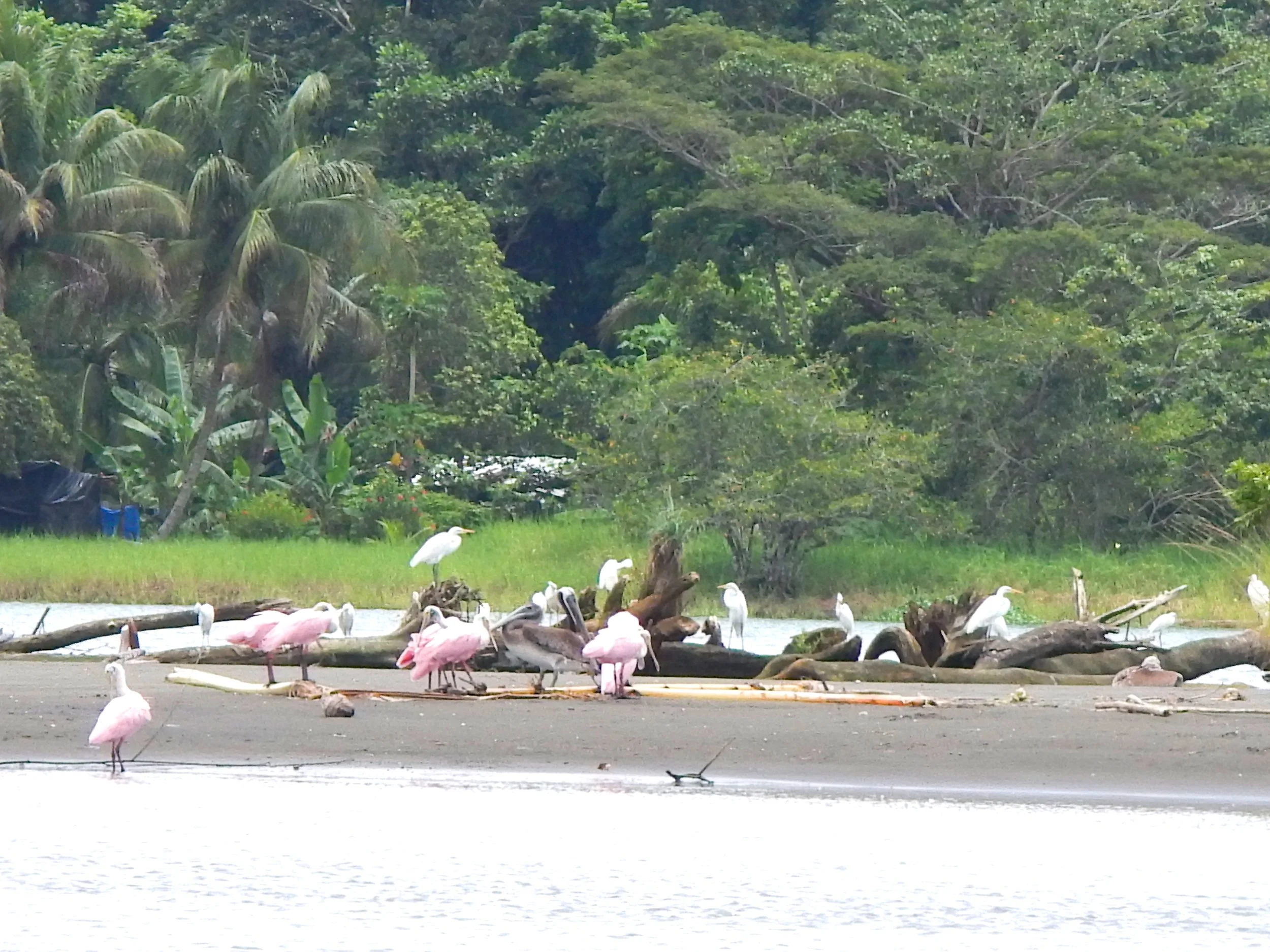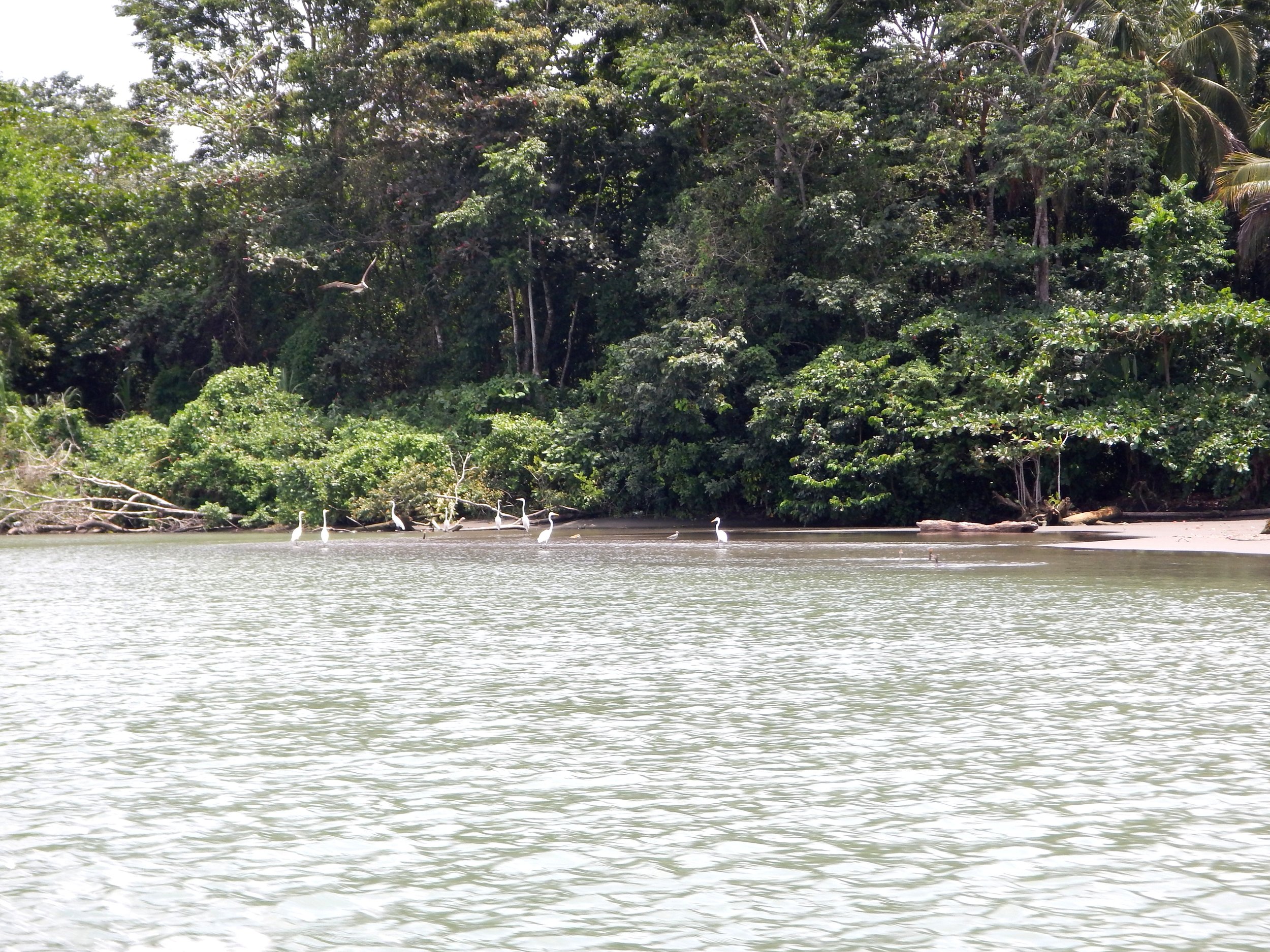Parismina
Turtle Sanctuary
Volunteering with ASTOP Asociación Salvemos las Tortugas de Parismina.
ASTOP (Asociación Salvemos las Tortugas de Parismina), is a community-based, non-profit, conservation organisation that works to protect sea turtles and their eggs from poaching while supporting sustainable development and providing a viable alternative economy to poaching in the village. I visited Parismina in July 2013 so some of my experiences will be outdated, but I also provide up-to-date information as detailed on their website.
My trip to Parismina, a small remote village on the east coast of Costa Rica, was my first experience ‘travelling’. This experience was… challenging. I was not prepared for the realities of travelling to a foreign country, where I can’t speak the language, and working somewhere remote. As a result, my friend who I was travelling with, and I cut our experience short which led us down a different travelling adventure. You can read a bit about my experiences as they happened in my journal – which I’ve copied over from when we made this trip back in 2013. Writing this post now was interesting to see how different my experience of travelling is now. How there are things I would and wouldn’t do, how better prepared I am, and how comfortable I have become with being in uncomfortable situations.
Getting to Parismina
I found ASTOP after an internet search trying to find an organisation that offered volunteering with turtles at an affordable price. ASTOP looked really good to me. It was reasonably priced, they worked with turtles and the local community, and we stayed with local families so we really got to immerse ourselves in the local life and culture.
To be a volunteer you are required to commit to a minimum of 5 nights. Volunteers have the option to stay in homestays, hotels/cabinas, and a volunteer house (which wasn’t available when we visited). In 2023, volunteer registration costs $56.50, the volunteer programme costs $11.30 per day and homestays are available at $39.55 a night.
I was excited. I was so excited. Our arrival to Costa Rica was a bit of a blur due to jet lag, but we spent our first night in San Jose before a morning start to Parismina. We organised a shuttle service to take us from San Jose to Limon and take a boat from there to make it easier for ourselves, rather than take public transport. However, public transport is generally straight forward and just involves some planning to align bus and boat times as you will make two changes.
We decided to book our boat transport from Limon to Parismina as a boat tour. There are quite a few companies that offer boat tours of the waters and wildlife, often taking you to Tortuguero. We booked one of these tours, but let them know that our destination was Parismina, so were able to book for a reduced price. This was great because we saw loads of wildlife including caiman, bats and many bird varieties. After a tour of the waters, we were dropped off at the docks of Parismina, greeted by a volunteer coordinator, and ready to begin our stay.
Volunteering with turtles
The real work happens at night with beach patrols, designed to deter poachers. A simple task, but actually quite a hard one, especially if you are still battling jetlag. There were 2 patrol shifts: 8pm - 12am and 12am - 4am. It gets dark early in this part of the world, with the sun usually set by 6pm. That coupled with not much to do on the island made it hard to keep yourself awake for patrol. There were definitely a couple times where I felt I was sleepwalking along the beach.
Patrols were long, 4 hours walking along the sand up and down the beach accompanied by one of the workers. My feet would get tired, I’d get hot and sweaty. You were out no matter the weather, unless there was lightening. As part of the patrol duties, if we came across a nesting turtle, we collected the eggs to take them back to the protected hatchery. Turtles can lay up to 100 eggs, and they are heavy! So you may also be carrying heavy sacks of these along your patrol too. Of course, it was awesome to see turtles make their way up the coast, dig a hole to lay their eggs and then make their way back to sea. We wouldn’t stand close to watch them, so not to disturb them, and would maybe watch a little before carrying on our patrol and then coming back to dig up the eggs. Unfortunately, there were occasions where we saw turtle tracks come up from the sea, but not return. This was often evidence of poachers taking turtles, and on one occasion we saw drag marks towards the coastal forest, an ominous sign.
During one of our night patrols we also came face to face with armed poachers wielding machetes. I couldn’t understand the conversation between them and our patrol worker, but it was handled calmly. We had to hand over our bags of turtle eggs, as volunteer safety is paramount, but it was really disheartening to experience. It drove home the very real threat turtles and turtle conservation are facing.
Suffice to say, patrol duties should not be considered as easy. They involve hard work, physically and mentally. You can read about my patrol experiences here.
Other volunteer duties came during the day and involved working on local projects with the community, such as activities with the local children, and monitoring the protected hatchery which was monitored 24/7. The hatchery was based on the beach, so hatchery monitoring was really a beach day, relaxing in a hammock reading a book. We were lucky enough to see turtle hatches occur. Watching the little baby turtles dig their way out of the sand and stumble towards the sea. It is very important not to interfere with this process, not to touch them or use flash photography, as it can disorientate them during their vital trip to the water.
Homestay
As part of the volunteer scheme you can stay with a local host family. Most families only speak Spanish, so this can be a challenge if you do not speak the language well. The homes in the village can be quite simple. We stayed in a small room, with bunk beds, and had access to the living/kitchen area although were not allowed to cook ourselves. Our shower was a hose and bucket situation and only cold water, which was actually very soothing for the many mosquito bites I had. Our host family provided us all we needed for our stay (bedding, towels, toiletries) and they fed us breakfast, lunch and dinner.
Being such a small village, they weren’t really many restaurants or shops open in the area at the time. Rather, it was more like other locals open up their homes to sell freshly baked good, home cooked meals, or produce.
All of the above was my experience in 2013. I’m sure things are different now, more developed. Check out their website and online maps for more up-to-date information.
Outside official volunteer hours (night patrol hours) there wasn’t a great deal to do. We lay on the black sand beaches, but the water was too rough for any swimming. We would visit other volunteer homes, walk around the island, trek into the forest to spot wildlife and cut down coconuts, watch telenovelas at home. But mostly we spent our free time with the local children, playing with them, doing arts and crafts, teaching English and learning Spanish. It was a very chill and slow paced lifestyle.
R’s take
Whilst volunteering to help turtles may sound cute, most of the work is not directly with turtles. In fact, your main objective is to have no contact with turtles so not to disturb their natural cycles, habitats and behaviours. Please bear this in mind before applying - if you want to volunteer with animals more directly you should look for different opportunities. Daytimes are quiet and chill, night times are long and potentially strenuous work. But if you’re looking for an opportunity to benefit a local community and detach from city life, then Parismina is a wonderful place to do it.

Beaches that you patrol for turtle eggs

Our room in our homestay

Boat tour to Parismina

Caiman spotted on boat tour to Parismina


Boat tour to Parismina

Flamingos spotted on boat tour to Parismina

Volunteering activity with local children

Turtle hatchery - guarding this was part of the volunteering tasks

Flamingos spotted on boat tour to Parismina

Boat tour to Parismina

Local soda in Parismina

Boat tour to Parismina

Parismina

Parismina

Bats spotted on boat tour to Parismina

Parismina

Baby caiman spotted on boat tour to Parismina

Volunteering activity with local children

Volunteering activity with local children

Parismina

Parismina coast

Coast of Parismina

Pelicans spotted on boat tour to Parismina

Boat tour to Parismina

Alligator spotted on boat tour to Parismina


Waves along the coast of Parismina

Parismina

Boat tour to Parismina

Boat tour to Parismina

Parismina


Boat tour to Parismina

Parismina

Boat tour to Parismina

Boat tour to Parismina

Always wear insect repellent...

Boat tour to Parismina






